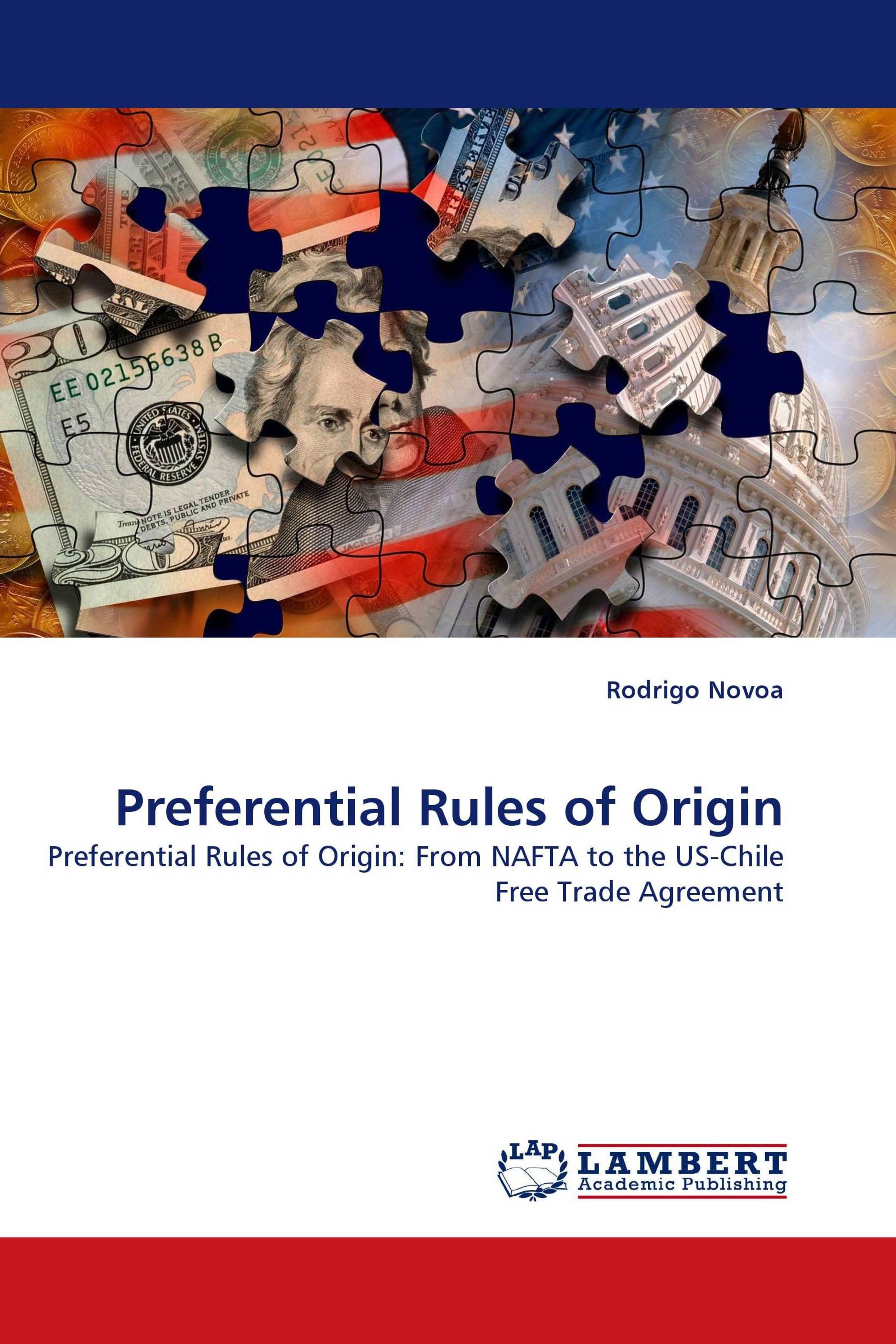Preferential Rules of Origin
Preferential Rules of Origin: From NAFTA to the US-Chile Free Trade Agreement
€ 49,00
On January 1, 2004—exactly a decade after the North American Free Trade Agreement went into force—the United States–Chile Free Trade Agreement (US-CFTA) became effective. Using NAFTA as a model, the agreement established a gradual reduction in tariffs and non-tariff barriers, with the finally intention of eliminating tariffs on substantially all trade among the members. More than 90% of the trade in "originating goods" between the U.S. and Chile became duty free immediately after the agreement went into force. Furthermore, trade in "originating goods" will be, as of January 2016, duty free for most products between these two countries. As it was in NAFTA negotiations, one of the biggest concerns that the U.S. had was that the benefits of the creation of the free trade agreement would be confined to trade among the United States and Chile. To accomplish this goal, the parties created comprehensive rules of origin, meaning a group of norms which object is to determine where a good has been produced. The determination of the country of origin of a particular good is becoming more important than ever before. Since many trade regulations—including preferential tariff treatment
Book Details: |
|
|
ISBN-13: |
978-3-8383-4911-4 |
|
ISBN-10: |
3838349113 |
|
EAN: |
9783838349114 |
|
Book language: |
English |
|
By (author) : |
Rodrigo Novoa |
|
Number of pages: |
76 |
|
Published on: |
2010-03-01 |
|
Category: |
Economics |
